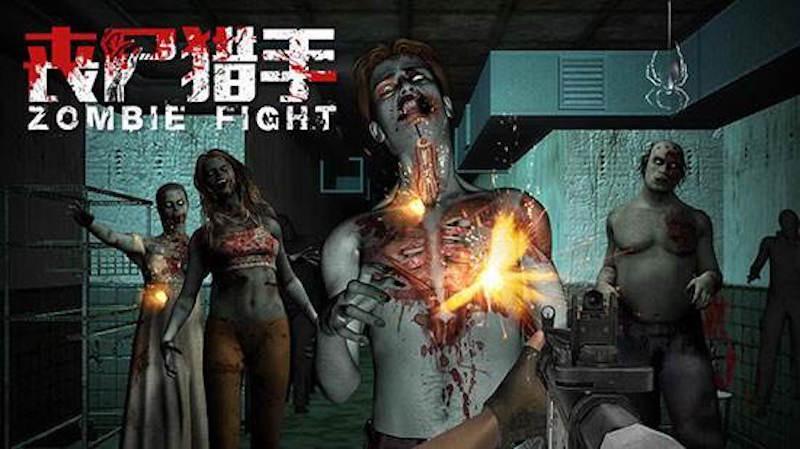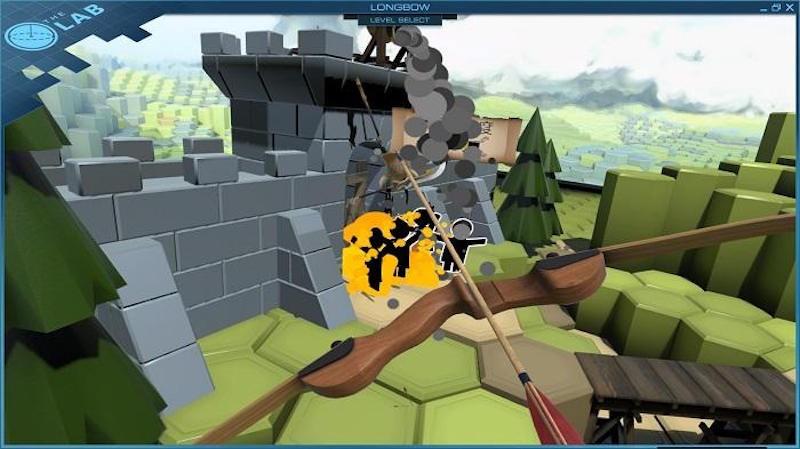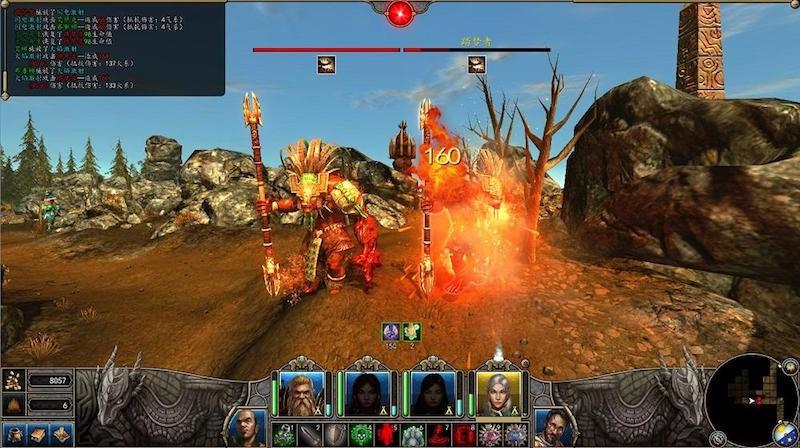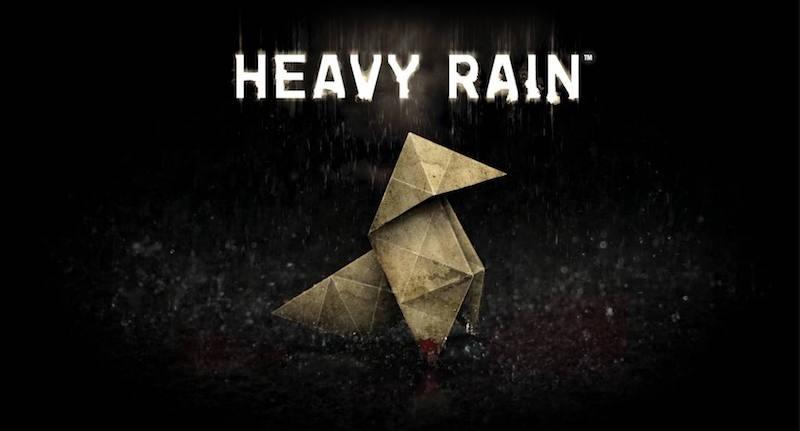
Last week, I wrote two essays on VR games. I finished the two questions "Why do we need VR games" and "What should VR games do?" Today I want to talk about which type of game is suitable for VR. . The types mentioned here are mainly based on the division of traditional games, such as FPS, ACT, RPG, etc. Whether VR will bring a new type in the future is not known. Here is just the analysis of the past concepts. FPS is best, TPS is also good   Most of the VR games we see today are FPS, which is the first person shooter. In our current cognition, VR seems to be suitable for the first person perspective, so FPS naturally becomes the first choice of the CP team. If you consider the immersive factors brought by VR, then it seems that making a FPS zombie VR game Is it a good idea, after all, is there a more exciting VR experience than playing zombies in a horrible place (or escaping from zombies)? The result of this consideration is that we saw a lot of zombie VR games in 2016, the quality of which is mixed, and the player's freshness is greatly reduced. In 2017, if the CP team wants to develop a zombie VR game, I think it must not be a good idea because the homogenization competition is too serious.
Most of the VR games we see today are FPS, which is the first person shooter. In our current cognition, VR seems to be suitable for the first person perspective, so FPS naturally becomes the first choice of the CP team. If you consider the immersive factors brought by VR, then it seems that making a FPS zombie VR game Is it a good idea, after all, is there a more exciting VR experience than playing zombies in a horrible place (or escaping from zombies)? The result of this consideration is that we saw a lot of zombie VR games in 2016, the quality of which is mixed, and the player's freshness is greatly reduced. In 2017, if the CP team wants to develop a zombie VR game, I think it must not be a good idea because the homogenization competition is too serious.  If you let me make a suggestion, I would recommend the CP team to refer to a game called "Splatoon" on the Nintendo platform. This game is not a FPS, but a TPS (third-person shooter), but its casual cartoon style is very lacking in my eyes. Using FPS to reflect horror and blood is a good choice, but it also naturally isolates the majority of women or casual players. If you use FPS to play some cute style games, it is likely to attract more users. Embrace VR games. In 2017, I personally look forward to see more casual VR FPS games. The hottest "Splatoon" has already explained that this road can be taken. The majority of CP teams in China may wish to consider it. TPS is also briefly explained here. Although the third person seems to be not suitable for VR, TPS is very popular in host and PC games in recent years, and it has overshadowed the momentum of FPS. In a VR environment, if we use the third person to control the protagonist, I feel that there is no problem, but we are more like a photographer behind the protagonist, recording the action of the protagonist. So far, I haven't seen a team that has produced a great VR TPS game. Think about it, maybe this is a blue ocean, right? ACT and SPG are both dynamic and a little tired Â
If you let me make a suggestion, I would recommend the CP team to refer to a game called "Splatoon" on the Nintendo platform. This game is not a FPS, but a TPS (third-person shooter), but its casual cartoon style is very lacking in my eyes. Using FPS to reflect horror and blood is a good choice, but it also naturally isolates the majority of women or casual players. If you use FPS to play some cute style games, it is likely to attract more users. Embrace VR games. In 2017, I personally look forward to see more casual VR FPS games. The hottest "Splatoon" has already explained that this road can be taken. The majority of CP teams in China may wish to consider it. TPS is also briefly explained here. Although the third person seems to be not suitable for VR, TPS is very popular in host and PC games in recent years, and it has overshadowed the momentum of FPS. In a VR environment, if we use the third person to control the protagonist, I feel that there is no problem, but we are more like a photographer behind the protagonist, recording the action of the protagonist. So far, I haven't seen a team that has produced a great VR TPS game. Think about it, maybe this is a blue ocean, right? ACT and SPG are both dynamic and a little tired   Putting ACT (Action Game) and SPG (Sports Game) together is because both types of games may require somatosensory operations in VR. Simply put, players need to use a somatosensory controller to swing weapons or bats. I think it would be interesting to think about how to use the somatosensory controller to simulate the action of shooting (or kicking), but if the player always needs to control the game through somatosensory, then the physical exertion of the player must be amazing. When the Wii launched by Nintendo was hot and then turned cold, I am afraid it is also related to the somatosensory mode. Although the player will feel very fresh at the beginning, after the fresh energy is over, the player will return to sit on the sofa and hold the handle to play. On the old road. On the other hand, many traditional ACT and SPG games have a lot of complicated movements. For example, the player can complete the roll or dunk action by pressing a button. This design is impossible in VR, if it is the first person. The protagonist plays a roll inside, and it is estimated that the player will faint directly. Therefore, it is very difficult to achieve a game similar to "Devil May Cry" or "Dark Soul" in VR games. Playing football and basketball in VR is not easy at present, perhaps in these aspects. We need more imagination. From the current point of view, ACT and SPG are not suitable for making VR games. SLG is more like God. Â
Putting ACT (Action Game) and SPG (Sports Game) together is because both types of games may require somatosensory operations in VR. Simply put, players need to use a somatosensory controller to swing weapons or bats. I think it would be interesting to think about how to use the somatosensory controller to simulate the action of shooting (or kicking), but if the player always needs to control the game through somatosensory, then the physical exertion of the player must be amazing. When the Wii launched by Nintendo was hot and then turned cold, I am afraid it is also related to the somatosensory mode. Although the player will feel very fresh at the beginning, after the fresh energy is over, the player will return to sit on the sofa and hold the handle to play. On the old road. On the other hand, many traditional ACT and SPG games have a lot of complicated movements. For example, the player can complete the roll or dunk action by pressing a button. This design is impossible in VR, if it is the first person. The protagonist plays a roll inside, and it is estimated that the player will faint directly. Therefore, it is very difficult to achieve a game similar to "Devil May Cry" or "Dark Soul" in VR games. Playing football and basketball in VR is not easy at present, perhaps in these aspects. We need more imagination. From the current point of view, ACT and SPG are not suitable for making VR games. SLG is more like God.   In fact, SLG should be called a simulation game, and it is also referred to as a strategy game in China. For example, "Three Kingdoms" and "The Sims" are actually included. Here I mainly want to talk about strategy games. In general, strategy games are taken from the perspective of God, and the player operates mainly through the mouse. In the world of VR, players are more like God, and choosing through the somatosensory controller is a natural interaction in my opinion. Imagine, on a small island, the player playing the gods can arrange any villager to do his work, and can also control the weather, this feeling is really good! In recent years, tower defense and push-type strategy games similar to LOL have become more popular. These types of games are also a good choice for VR. I have seen some teams in China have tried in these two directions, and the results from the finished product are not bad. Strategy games have high requirements for data. If CP wants to work in this direction, it must strive for the relevant data. For me personally, I am very much looking forward to the emergence of the VR version of LOL (or the glory of the king) in the future, when you want to fight side by side with your friends, you may really need to wear a VR headset. RPG may be best, big sandbox is the future Â
In fact, SLG should be called a simulation game, and it is also referred to as a strategy game in China. For example, "Three Kingdoms" and "The Sims" are actually included. Here I mainly want to talk about strategy games. In general, strategy games are taken from the perspective of God, and the player operates mainly through the mouse. In the world of VR, players are more like God, and choosing through the somatosensory controller is a natural interaction in my opinion. Imagine, on a small island, the player playing the gods can arrange any villager to do his work, and can also control the weather, this feeling is really good! In recent years, tower defense and push-type strategy games similar to LOL have become more popular. These types of games are also a good choice for VR. I have seen some teams in China have tried in these two directions, and the results from the finished product are not bad. Strategy games have high requirements for data. If CP wants to work in this direction, it must strive for the relevant data. For me personally, I am very much looking forward to the emergence of the VR version of LOL (or the glory of the king) in the future, when you want to fight side by side with your friends, you may really need to wear a VR headset. RPG may be best, big sandbox is the future   Finally I said my favorite game type, that is RPG. In fact, RPG has always had a branch of Japanese RPG and RPG in Europe and America, and many RPGs in Europe and America are first-person, such as the famous "Magic Door" series. From this perspective, many European and American RPGs have certain FPS elements, except that FPS players emit bullets or lasers, while RPG players use magic or bows. It is almost very reasonable to use the first-person RPG for VR. The most worthy of my expectation is the VR version of "Radiation 4". Of course, if you can produce a VR version of "Magic Door" in the future, it would be too shocking, even though I think This possibility is not great. One concept related to RPG is the sandbox game, or the open story. Many European and American RPGs are open at first, players can explore the big map at random, instead of being fixed on a mainline story. Recently, the most open game is the Nintendo platform's new work "The Legend of Zelda: The Wilderness". This work can be said to be loved, and open design is one of the main reasons for its great success. Based on my understanding and experience of RPG, I have every reason to believe that the VR version of the RPG game must be the future killer application, and the sandbox mode will certainly be the mainstream VR RPG game. Of course, a good RPG requires a very long development time, because the game time is very long, the player's requirements are also many, so it may not be the first choice of the current CP team. Interactive story still takes time Â
Finally I said my favorite game type, that is RPG. In fact, RPG has always had a branch of Japanese RPG and RPG in Europe and America, and many RPGs in Europe and America are first-person, such as the famous "Magic Door" series. From this perspective, many European and American RPGs have certain FPS elements, except that FPS players emit bullets or lasers, while RPG players use magic or bows. It is almost very reasonable to use the first-person RPG for VR. The most worthy of my expectation is the VR version of "Radiation 4". Of course, if you can produce a VR version of "Magic Door" in the future, it would be too shocking, even though I think This possibility is not great. One concept related to RPG is the sandbox game, or the open story. Many European and American RPGs are open at first, players can explore the big map at random, instead of being fixed on a mainline story. Recently, the most open game is the Nintendo platform's new work "The Legend of Zelda: The Wilderness". This work can be said to be loved, and open design is one of the main reasons for its great success. Based on my understanding and experience of RPG, I have every reason to believe that the VR version of the RPG game must be the future killer application, and the sandbox mode will certainly be the mainstream VR RPG game. Of course, a good RPG requires a very long development time, because the game time is very long, the player's requirements are also many, so it may not be the first choice of the current CP team. Interactive story still takes time Â

In the past few years, there has also been a type of game, that is, interactive movies. The focus of this type is not on "playing" but on "drama". Its masterpieces include "Rainstorm" and "Superior Twins". Rather than being a game, it is an interactive experience. Players only need simple operations to advance the story during the game. I think this way has a certain degree of fit with VR. It may be an interesting experience to experience a story with the first person. However, I have to say that interactive movies (especially VR) are still in an exploratory stage, and it will take time for their own development and improvement. If the CP team carries out innovation in this area, it is commercially The risk is high, so small teams are not recommended to choose this direction. To put it simply, I have a view of the combination of different game types and VR. So far, my analysis of the VR game series has come to an end. The above points are some of my personal ideas, there is no data support, here is just hope to have some exchanges with everyone. Finally, I personally are full of desire and expectation for the future development of VR games. With a cliché of words as the finishing touch, the evolution of VR games is only limited by our imagination.
Baking Set,Kids Baking Set,Nonslip Silicone Kids Baking Set,Silicone Baking Set
vchomy , https://www.jsvichen.com